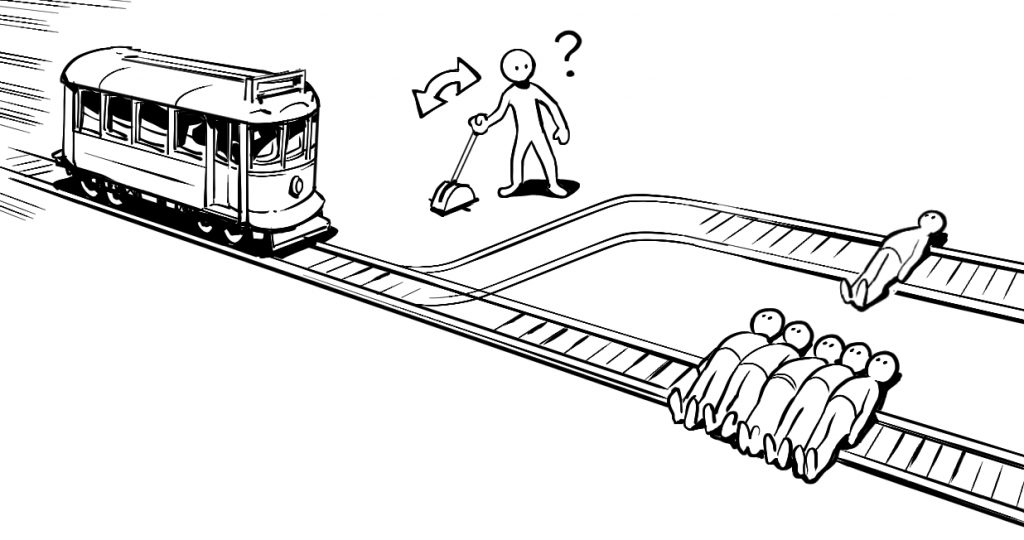We are all decision makers. It’s inescapable. One of the primary dimensions on which decision makers differ is decisiveness/indecisiveness.
According to Merriam-Webster, decisive means having the power or quality of deciding; resolute, determined; purposeful.
During the first stage in any decision making situation, everyone experiences a transitory level of indecision. In the second stage, the more stable proneness regarding decision-making tasks comes into play.
Decisiveness
Decisive people are confident decision-makers. They tend to make up their minds quickly and stick with their chosen course of action. What are the characteristics of a decisive person?

- They make decisions relatively quickly and don’t seem to stress over them.
- They’re confident making decisions.
- They tend to be more comfortable with risk, especially if it’s an informed risk.
- They can be resistant to change once they’ve made a decision.
The decisive person is really good at being curious and asking the right questions, evaluating all of the relevant information available, and looking at it from multiple angles to determine the best decision and course of action.
Such people understand that deciding is only half the battle. They are also determined people who see their decision through. They act on it, and upon completion, analyze the results to determine how effective their decision was at solving the issue.
Other character traits might contribute to a person’s decisiveness.
- Brave
- Confident
- Curious
- Determined
- Focused
- Motivated
- Perceptive
- Responsible
- Steadfast
- Resilient
Indecisiveness
Someone who is indecisive has trouble making decisions. People who are only somewhat indecisive may take their time with decisions and want to consider their options before moving ahead. Extremely indecisive people may put off making decisions for so long that they run out of time, or keep waffling on choices they’ve already made.
What are the characteristics of indecisive people?
- They have a hard time making decisions and may be very stressed when they have to do it.
- They’re easily influenced by others with strong opinions (and may even prefer that someone else make the final call).
- They may lack confidence in their decisions, even after the choice is made.
- They carefully consider all the options and weigh the pros and cons of each.
Difficulty in making decisions can be caused by several factors, such as a fear of failure and a lack of confidence or information. Perfectionists often struggle with indecisiveness, putting off making any choice until they can be sure they’ve made the best one.
Too much information can also contribute to indecisiveness. When a family member suggests one course of action, a friend recommends another, and a coworker thinks a third path is best, it can be difficult to decide which advice to follow.
Having too many choices can also contribute to indecisiveness. When faced with choosing from forty varieties of coffee, a cafe patron is likely to be less satisfied with whatever drink they choose.
An indecisive person is deeply insecure and hardly ever takes chances. Leaps of faith are nearly impossible because they do not trust themselves to choose. Depression and anxiety lead the way to negative predictions and living in limbo.
A hallmark feature of being indecisive is struggling with self-doubt. Doubt can pervade and disrupt any aspect of life, be it careers, relationships, worldview, or identity.
Executive Function Disorder
Indecisiveness can also be a symptom of an underlying issue. Mental health conditions, such as attention deficit hyperactivity disorder (ADHD), post-traumatic stress disorder (PTSD), or obsessive-compulsive disorder (OCD) can cause difficulties with cognitive flexibility or inhibition control. Developments such as dementia, addiction, or head injuries can also interrupt one’s executive function, particularly by impairing a person’s working memory. In some cases, these conditions cause executive dysfunction.
Difficulties with working memory, cognitive flexibility, and inhibition control can cause an inability to make decisions. In extreme cases, executive dysfunction can be paralyzing. Even minor decisions like when and what to eat for dinner become insurmountable obstacles. A person may experience time blindness, inability to focus, or difficulty determining which steps need to be implemented in order to complete a task.
In cases like these, a person may require extensive therapy and even medication to regain the ability to make rational decisions.
False Decisiveness
But decisiveness isn’t always smooth sailing. Consider the following decision-making traps:
- Disregarding new information and making biased inferences. This closed-mindedness can manifest, for example, in poorer short-term memory.
- Suffering confirmation bias—the tendency to rely on information that confirms what we already believe, and to discount data that may contradict our pre-existing positions.
- Jumping from decision to rapid implementation seems to be what underpins the problems. When asked to consider the advantages and disadvantages of a course of action, those in an implemental mindset report few, if any, downsides.
- The illusion of control. This is overestimating one’s amount of control regardless of feedback.
- Everyone is susceptible to illusions of invulnerability (especially teenagers), which leads to downplaying risk.
According to research, business leaders are no less vulnerable than other research subjects to overconfidence. Using massive, multi-year surveys of CFOs, researchers found that respondents significantly underestimated the volatility of an overall stock index and the share performance of their own company.
Downsides to Decisiveness
Sometimes decisiveness is dangerous. In business, the biases outlined above contribute to under-performing deals, cost overruns, and failed product launches. These shortfalls can be amplified by other biases. For example, if a decision-maker already believes in the merits of a particular course of action, the previously mentioned confirmation bias can skew how new information is interpreted.
Research by Jana-Maria Hohnsbehn and Iris Schneider at Technische Universitat Dresden indicates that “trait ambivalence” may actually lead people to overcome confirmation bias and correspondence bias. People who stop to evaluate all available options tend to make decisions or evaluations rooted in fact rather than leaping to conclusions.
Parallel dangers exist for decisive military leaders, politicians, doctors, lawyers, etc. In personal/friendship/family relationships:
- Decisiveness may come across as domineering, pushy, uncaring, impulsive, stubborn, closed-minded, and more.
- Indecisiveness seems wishy-washy, lacking in passion, lacking in spontaneity, unsupportive, dependent, clingy, and more.
While decisiveness is usually perceived as a virtue (and indecisive as a weakness), it’s important to remember that these traits exist on a spectrum. Extreme indecisive personalities and extreme decisive personalities can both create problems. Some situations do require more decisiveness. In others, indecision won’t present a problem, especially if the risks are high.
Bottom line: Remember that decisiveness (or indecisiveness) as a personality trait doesn’t necessarily correlate with good judgment.







